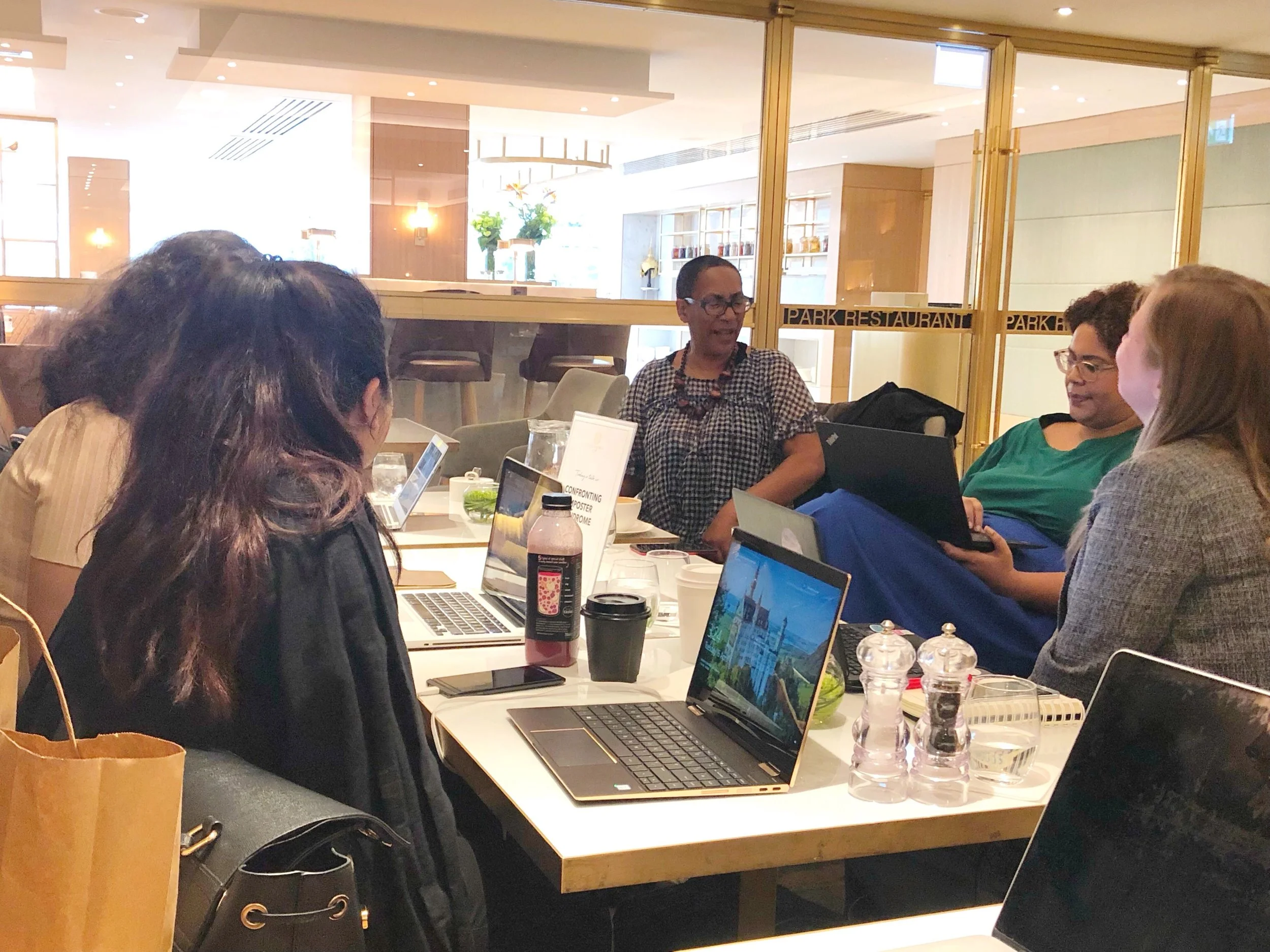Taboo: Let’s Talk About Loneliness
“Loneliness [...] a shameful, embarrassing thing, brought upon yourself in some obscure way. A fearful, incurable thing, so horrifying that you dare not mention it; other people don’t want to hear the word spoken aloud for fear that they might too be afflicted, or that it might tempt fate into visiting a similar horror upon them.”
Loneliness can affect us all and may creep up on us at any point in our lives. Yet it’s something so few of us would be willing to admit. Putting a focus on London living, we promote independence, being happy, and being successful to such an extent - as ultimate goals in today’s society - that admitting to loneliness seems like you’re failing. Loneliness is painted as a weakness. How can you be lonely when you’re living in one of the busiest, bustling, most vibrant cities in the world? You’ve got friends, a job, a house over your head, people around you, and yet you’re still feeling lonely? Yes. And that does not make you weak.
Typically, loneliness is associated with the elderly - with loved ones passing, the isolation of living alone and deteriorating health all impacting upon physical and mental states of the older generation. As Deborah Moggach (author of the novel adapted for The Best Exotic Marigold Hotel films) comments, “loneliness really is the last taboo”. However, the stigma of loneliness is not the reserve of older generations alone. It can affect all of us. There just doesn’t seem to be the space to able to talk about it.
Research from the Office for National Statistics in 2016-2017 revealed that about one in 20 people admit to “always” or “often” feeling lonely. And compared with all other age groups, except the 25 to 34 years group, those aged 16 to 24 years were significantly more likely to report feeling lonely “often/always”. As a generation, we have fortunately been opening up the conversation about mental health. We talk about anxieties and depression, to varying degrees, which is a step in the right direction. However, “loneliness” still seems to be a grey area for younger generations, which many people would be embarrassed to admit to or may not even be able to acknowledge within themselves. If I look at myself, I think surely I have no right to be lonely. But yet sometimes I do. I can’t necessarily explain it, and why I feel lonely, but then why should we have to? Why should we feel ashamed of it?
Living in a big city, there’s a paradoxical equation between living in a hugely populated area, but then feeling lonelier and more isolated than ever. It resonates that amongst the masses of people, we can feel more alienated than anywhere else. The potential for a sense of community exists, but with everyone living their own lives at such an increased rate, with their own pressures and worries, any sense of togetherness dissipates. However many friends or social groups we interact with, whether we’re single or have a partner, sometimes, we can still feel lonely. With everyone else moving, working, socialising around us, doing their own thing, it’s easy to feel like you’re not doing enough and not living “our best lives”. I’ve walked down Oxford Street before, the busiest place in the city, and had a massive pang of loneliness, feeling completely apart and alone to the crazy busy environment around me.
Something that also resonates with this are findings in the ONS survey that renters reported feeling lonely more often than homeowners. And it makes sense, when you’re renting in a big city it’s harder to find that sense of belonging and sense of stability when your place of living is not necessarily guaranteed year on year. All of this can amalgamate, and it has the potential to become all-consuming, but it shouldn’t be something we feel ashamed of or scared of either. It’s something we can acknowledge, talk about, and accept in order to get through it and come out the other side.
A book that has really stayed with me this past year has been the Sunday Times Bestseller Gail Honeyman’s Eleanor Oliphant is Completely Fine. This is a novel that poignantly touches on the often buried taboo of loneliness and the way in which it can go unnoticed. Through Eleanor’s open and unfiltered narrative, Honeyman reveals the way in which people are so quick to pretend everything is okay. In a revealing moment, Eleanor expresses, “People don’t like facts, but I can’t help that. If someone asks you how you are, you are meant to say FINE. You are not meant to say that you cried yourself to sleep last night because you hadn’t spoken to another person for two consecutive days. FINE is what you say.” As Honeyman exposes throughout the novel, pretending to be FINE can be destructive. Eleanor’s case may be more extreme than others, but it unmasks feelings of loneliness and alienation that anyone might feel from time to time, and how it can be difficult to admit to feeling anything other than fine when we are expected to be switched on, and at the top of our game, all the time.
As one final thought, let’s look to the tube. This has got to be a massive symbol for the taboo of loneliness in the city. It forces a huge number of people into a claustrophobic small space. Yet the norm is to travel eyes down, communication banned. You sit there surrounded by loads of people, but everyone is defiantly isolated. It’s time we began to mind that gap, and opened up the space for talking about loneliness. What rule says we can't look up and look around us on the tube with our fellow commuters and companions. It’s normal to feel isolated in this city and we shouldn’t be worried about admitting it.
Words by Lottie Franklin












